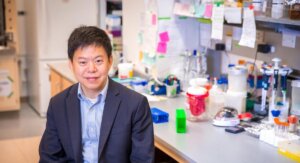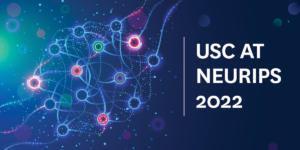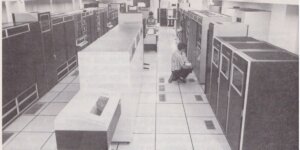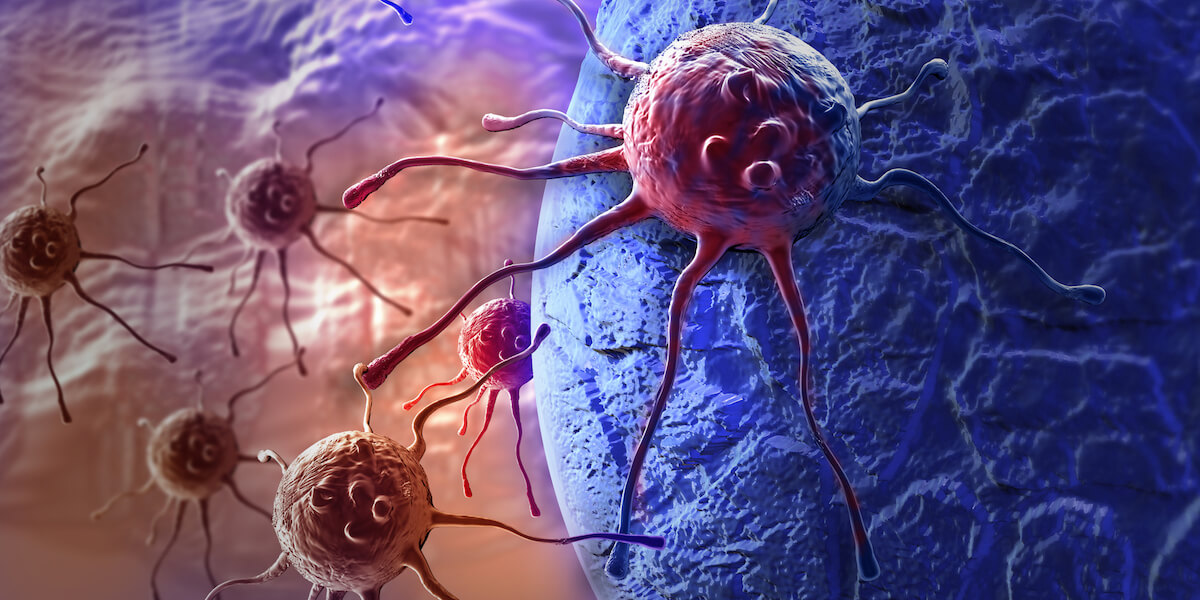
A cancer cell (Photo/iStock)
Fei Sha believes in the power of convergence.
That’s why the associate professor in computer science and Zohrab A. Kaprielian Fellow in Engineering feels so excited about the opening of the USC Michelson Center for Convergent Bioscience, which is funded by a $50 million gift from Dr. Gary Michelson and his wife, Alya. There, Sha will head the Center of Data, Algorithms, and Systems for Health, or DASH, which will apply cutting-edge findings of statistical machine learning to medical science.
“I want to apply machine learning to solve important and challenging problems in health and bioscience, but I need collaborators,” Sha said. “Michelson provides a focal point where I can pull expertise from great biologists, biomedical engineers and computational scientists to advance our knowledge to the next frontier.
“I can actually walk down the hall and, on the same floor, see [imaging expert and Provost Professor of Biological Engineering] Scott Fraser, [Dean’s Professor of Biological Sciences and personalized medicine and cancer care expert] Peter Kuhn and [Provost Professor of Neurology, Biomedical Engineering and Biological Sciences] Steve Kay,” Sha added. “I could knock on their door and say, ‘I have this idea. What do you think about this? Do you have any problems that you think computational learning might help solve?’ Michelson will galvanize people to intellectually stimulate each other to embark upon the pursuits of common goals.”
The Michelson Center’s opening, with its emphasis on the intersection of engineering and medicine, coincides with an explosion in the use of AI in healthcare. Machines are now learning how to read CT scans to identify abnormalities. In robot-assisted surgery, robots can integrate information from pre-op medical records with real-time operating analytics to improve surgical precision. More than 50 hospitals now use IBM’s Watson for Oncology, according to IBM.
“AI today can truly augment human activity, taking over tasks that range from medical imaging to risk analysis to diagnosing health conditions,” said a recent report by Accenture. The global consulting firm estimates that AI could potentially save the United States economy $150 billion annually in healthcare costs by 2026. Additionally, a recent survey by “Healthcare IT News” and HIMSS Analytics found that half the healthcare organizations surveyed expect to employ AI within the next five years.
For years, Sha has embraced the interdisciplinary approach embodied by the Michelson Center to help find solutions to some of the most vexing issues in healthcare, including cancer.
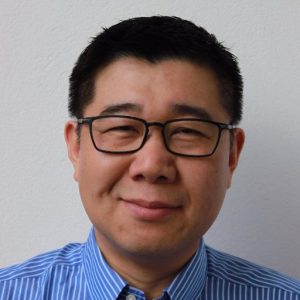
Fei Sha (Photo/Courtesy USC)
Sha currently partners with Dr. David Agus, the founding director and CEO of the Lawrence J. Ellison Institute for Transformative Medicine, to develop a technology platform that would analyze tissue samples to diagnose breast cancer and yield more information, like cancer outcome and response to treatment. It would do so by leveraging machine learning, feeding a computer enough biopsy data, provided by the Cancer Genome Atlas, to identify patterns, anomalies and clinically relevant breast cancer subtypes, such as determining the response to estrogen targeted therapies.
Added Agus, who holds appointments at the Keck School of Medicine of USC and USC Viterbi and authored the “New York Times” bestseller “The End of Illness:” “Fei’s expertise in machine learning has been instrumental in the success of the project, which is moving forward at a very fast pace.”
Sha also has a funded collaboration with Dr. Stephen Gruber, a Keck School professor of medicine and preventive medicine who holds the Jane & Kris Popovich Chair in Cancer Research. The pair want to explore how genetic biomarker variations of the immune system correlate to diversity in melanoma cancer cells, Sha said. Such information, he added, could help identify the genetic cause of the most challenging-to-cure cancer subtypes and hopefully develop precision therapy for those cancers.
Additionally, Sha and Ray Stevens, Provost Professor of Biological Sciences, Chemistry, and Chemical Engineering and Materials Science and director of The Bridge Institute, have already started conversations on applying machine learning techniques for understanding the relationship between structures and functions, with potential applications to drug discovery.
Sha’s interest in marrying machine learning and medicine is longstanding and personal. About two decades ago, his beloved grandmother died of cancer in rural China. At the time, he said, the country’s preventative and diagnostic capabilities fell short. Sha hopes that his and his colleagues’ work at the Michelson Center will help advance and personalize healthcare for loved ones everywhere.
“I want to work with doctors to maximize the quality of life of those patients who have been combating cancers and many other diseases,” Sha said.
Sha joined USC Viterbi in 2008. His research interest has always been statistical machine learning, a field that has greatly advanced the power of artificial intelligence since the arrival of Big Data. His research lab has developed technologies for automatic speech recognition, natural language understanding and computer vision. The central theme of his work is to develop novel probabilistic models and computational methods to extract actionable knowledge from data. In 2012, Sha received an Army Research Office Young Investigator Award, and was subsequently named an Alfred P. Sloan Research Fellow, a prestigious award for young scientists.
Looking forward, Sha said the Michelson Center would provide him and the other interdisciplinary researchers with an invaluable platform for discovery.
“I am excited by the chance to apply algorithmic, computational and statistical models to unravel mysteries in biological organisms and to generate life-saving biomedical research outcomes,” he said.
Published on October 31st, 2017
Last updated on July 21st, 2021




